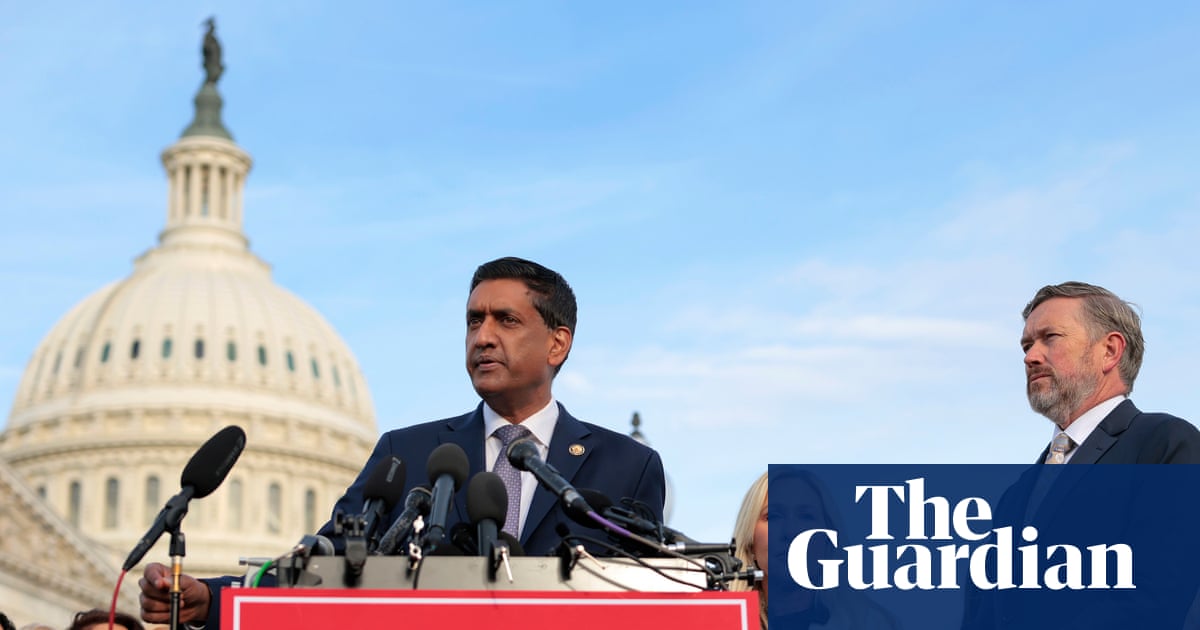Frozen dinners were useful when no one was home to cook. A fancy cheese or apple roll felt like a family treat. But not any more. “We can’t afford to do those little luxuries any more because they’re just too expensive to feed five with,” says Cat Hill. “There’s not any wiggle room.”
The 43-year-old from Hornby, New York, has been hit by both higher grocery prices and rising costs for her small business running a horse stable. Under Donald Trump, she worries it may get even harder. “With this administration, it doesn’t appear to be stabilising,” she adds. “It’s hard to think about how exactly we are going to ride this out.”
Hill is among millions of people feeling the pain of the US’s affordability crisis. The costs of groceries, housing, childcare, education and healthcare have become intolerable to many, who in turn put the blame on politicians. As Thanksgiving approaches, it appears that the US president is belatedly waking up to the problem and scrambling for answers.
During last year’s election campaign, Trump was all too conscious of the political utility of the high cost of living. He promised voters that he would bring down prices “starting on day one”. But two days after winning, he changed course by remarking: “Our groceries are way down. Everything is way down … So I don’t want to hear about the affordability.”
Much of the first year of Trump’s second term was then dominated by his trade wars, his draconian crackdown on illegal immigration, his decision to send national guard troops into American cities and the longest government shutdown in history.
But voters had other concerns. Prices rose in five of the six main grocery groups tracked in the consumer price index from January to September. These include meats, poultry and fish (up 4.5%), non-alcoholic beverages (up 2.8%) and fruits and vegetables (up 1.3%).
Officials at the Federal Reserve have long been clear that Trump’s tariffs caused inflation, though it is uncertain how long the effects will last. Consumer prices had been increasing at an annual rate of 2.3% in April when Trump launched the import taxes and that rate accelerated to 3% in September.
Adding insult to injury, even as the shutdown deepened the financial woes of many, Trump launched remodeling projects including a gilded ballroom attached to the White House and threw a Great Gatsby-themed party at his luxurious Mar-a-Lago estate in Florida.
Tara Setmayer, co-founder and chief executive of the Seneca Project, a women-led Super Pac, said: “The ads write themselves [for the midterm elections] in 2026 when you have a president who promised to make the American people’s lives better – and who was supposed to be a champion of the working class and not of the elite – bragging repeatedly from his gilded Oval Office while military families are on food bank lines.
“It’s so tone-deaf and so ‘let them eat cake’ it’s hard to believe that he’s serious about this but he is and keeps constantly doing this. It screams: ‘I don’t give a damn about everyday people,’ and his base is beginning to wake up to the fact that perhaps he doesn’t care about us.”
The shutdown froze the collection of the most recent data but it is clear that people feel like prices are too high. Consumer sentiment dropped to a near record low in November, going from 71.8 out of 100 in November 2024 to 51, according to the University of Michigan’s Surveys of Consumers.

Joanne Hsu, the director of the survey and an economist at the University of Michigan, said that even while concerns over tariffs have started to level off, consumers are still experiencing higher prices.
Consumers “are continuing to be very frustrated by these high prices”, Hsu said. “They feel like those high prices are eroding their living standard, and they just don’t feel like they’re thriving at the end of the day.”
It was against this backdrop that Republicans were blindsided by this month’s elections when Democrats swept the board from New York to Virginia with a message laser-focused on affordability. Economic worries were the dominant concern for voters, according to the AP Voter Poll.
Trump entered a period of denial. He posted on social media: “Affordability is a lie when used by the Dems. It is a complete CON JOB. Thanksgiving costs are 25% lower this year than last, under Crooked Joe! We are the Party of Affordability!”
But he was also stung into action. He conceded that some consumer costs are “a little bit higher” and floated some half-formed ideas to ease financial pressures. He said he may stretch the 30-year mortgage to 50 years to reduce the size of monthly payments.
He partially backtracked on tariffs, a core part of his economic agenda, reducing levies on imports of products such as coffee, beef and tropical fruit, admitting they “may, in some cases” have contributed to higher prices.
Adam Green, co-founder of the Progressive Change Campaign Committee, said: “The fact that Trump decided to lower tariffs on coffee and bananas is a complete admission that across the economy he is jacking up prices on millions of families. That was a big tell and Democrats should be exploiting that.
“Every Democrat should be going to a supermarket pointing to bananas and coffee on social media and saying, if you see prices come down, that is Trump admitting that he’s jacking up prices everywhere: your car, your baby diapers, your other foods.”
Trump also proposed a $2,000 dividend, funded by tariff revenue, for all Americans except the rich. This could take the form of a cheque bearing his signature, reminiscent of stimulus cheques he sent to millions of Americans during the Covid-19 pandemic.
But Republicans on Capitol Hill were distinctly sceptical about the idea at a time when the federal government is burdened by debt, warning that the Trump cheques could fuel even further inflation.
It might be too little too late. In a recent Fox News poll, 76% of respondents had a negative view of the state of the economy – down 9% since July. In a Marquette University survey, 72% disapproved of Trump’s handling of inflation and the cost of living. And in a Reuters/Ipsos poll, 65% of respondents, including a third of Republicans, disapproved of Trump’s handling of the cost of living.
On Monday, Trump used a summit sponsored by McDonald’s to insist the economy was moving in the right direction and cast blame on his predecessor, Joe Biden. “We had the highest, think of it, the highest inflation in the history of our country,” he said.
“Now we have normal inflation. We’re going to get it a little bit lower, frankly, but we have normal, we’ve normalized it, we have it down to a low level, but we’re going to get it a little bit lower. We want perfection.”
But Trump’s troubles might be giving voters a feeling of déjà vu. Biden tried to convince Americans that the economy was strong. “Bidenomics is working,” he said in a 2023 speech. “Today, the US has had the highest economic growth rate, leading the world economies since the pandemic.”
His arguments did little to sway voters as only 36% of adults in August 2023 approved of his handling of the economy, according to a poll at the time by the Associated Press-Norc Center for Public Affairs Research.
Now Trump is leaning on a message that echoes Biden’s claims in 2021 that elevated inflation is simply a “transitory” problem that will soon disappear. “We’re going to be hitting 1.5% pretty soon,” he told reporters earlier this month. ”It’s all coming down.”
But Jared Bernstein, a former chair of the White House Council of Economic Advisers under Biden, disputes the notion that Biden and Trump were equally guilty of downplaying inflation. He said: “We were talking past people. They’re telling people things that are false. In terms of ineffective messaging, those are equivalent. In terms of truthfulness, one is is honest and the other is false.”
Bernstein, now a senior fellow at the Center for American Progress thinktank, added: “They’re making a very consequential mistake, which is strongly, loudly asserting that people are better off than they know they are. What’s fascinating about all this to me is that Donald Trump believes, correctly, that he has a superpower. He can get his followers to believe whatever reality he puts out there, and that’s worked for him for a very long time but it won’t work on this. Affordability is kryptonite to his superpower because his followers know which way is up when it comes to prices.”

 German (DE)
German (DE)  English (US)
English (US)  Spanish (ES)
Spanish (ES)  French (FR)
French (FR)  Hindi (IN)
Hindi (IN)  Italian (IT)
Italian (IT)  Russian (RU)
Russian (RU)  3 weeks ago
3 weeks ago
























Comments